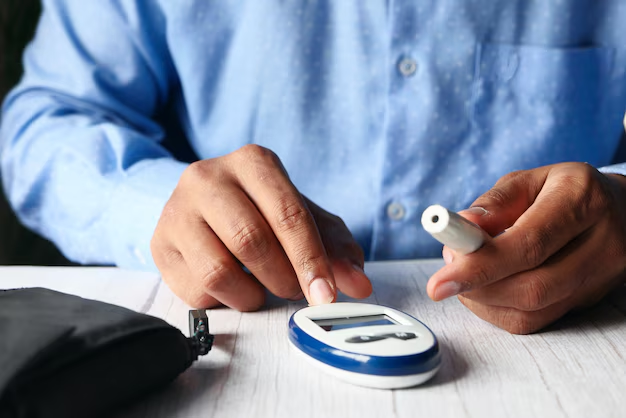Your Guide to How Can You Tell If You Are Diabetic
What You Get:
Free Guide
Free, helpful information about Diabetes FAQ and related How Can You Tell If You Are Diabetic topics.
Helpful Information
Get clear and easy-to-understand details about How Can You Tell If You Are Diabetic topics and resources.
Personalized Offers
Answer a few optional questions to receive offers or information related to Diabetes FAQ. The survey is optional and not required to access your free guide.
How to Recognize Signs of Diabetes and Take Action
Diabetes is a condition that affects millions worldwide, but many people may not even realize they have it. Recognizing the signs early can lead to better management and prevent complications. So, how can you tell if you are diabetic?
Key Symptoms to Watch For
Diabetes symptoms can sometimes be subtle. Being aware of what to look for can help you take the right steps:
Frequent Urination: An unusually high need to urinate might be an early sign of diabetes. This occurs as the kidneys work harder to excrete excess glucose from the blood.
Increased Thirst: As your body tries to rid itself of excess sugar, you may become dehydrated, leading to a persistent, unquenchable thirst.
Excessive Hunger: Despite consuming meals regularly, you may find yourself constantly hungry. This happens when your body's inability to use glucose properly leaves your cells starved for energy.
Unexplained Weight Loss: Without increased physical activity or dietary changes, losing weight can be a surprising sign of diabetes. Your body may start to burn fat and muscle for energy, resulting in weight loss.
Fatigue: Unusual fatigue or feeling very tired may occur due to your body not processing insulin properly, which impacts energy distribution.
Blurred Vision: High levels of blood sugar can cause the lenses of your eyes to swell, leading to blurred vision.
What to Do If You Notice Symptoms
If any of these symptoms sound familiar, consider the following steps:
Schedule a Medical Check-Up: Contact a healthcare provider to discuss your symptoms. They may recommend a blood test to measure your blood sugar levels and determine whether you have diabetes.
Make Lifestyle Adjustments: Begin monitoring your diet, increase physical activity, and stay hydrated. These changes can positively impact blood sugar levels and overall well-being.
Stay Informed: Educate yourself about diabetes and its management. Understanding the disease empowers you to make informed decisions about your health.
Exploring Financial and Educational Support
Being diagnosed with diabetes can also bring financial concerns due to healthcare needs. However, there are numerous resources available to support you:
Government Health Programs: Programs like Medicaid or Medicare may offer benefits for those needing assistance with medical expenses.
Diabetes Management Programs: Numerous organizations provide subsidized or free resources, including educational workshops and materials, to help manage diabetes effectively.
Financial Assistance: Some foundations offer grants or assistance specifically for individuals with chronic conditions to ease the financial burden.
Insurance Options: Review your insurance coverage to ensure it encompasses necessary treatments and prescriptions. There may also be specific diabetes insurance plans that can provide additional help.
Educational Grants: If you're in school, look into grants and scholarships available for those with medical conditions. Many colleges offer support for students managing chronic illnesses.
Navigating the financial aspects of a diabetes diagnosis can be daunting, but remember, numerous supportive programs are ready to assist you along the way.
Assistance Programs and Resources 🏥💰
- Medicaid/Medicare: Federal programs offering coverage for medical expenses.
- Nonprofit Diabetes Assistance: Organizations dedicated to providing education and financial support.
- Insurance Plans: Specialized health insurance covering diabetes treatment and medications.
- College Scholarships: Educational grants for students with chronic conditions.
- Local Clinics: Community clinics offering free or reduced-cost services for diabetes management.
Detecting diabetes early can make a significant difference in your health journey. By staying informed, seeking medical advice promptly, and exploring supportive resources, you can manage diabetes effectively while mitigating financial strain.
What You Get:
Free Diabetes FAQ Guide
Free, helpful information about How Can You Tell If You Are Diabetic and related resources.

Helpful Information
Get clear, easy-to-understand details about How Can You Tell If You Are Diabetic topics.

Optional Personalized Offers
Answer a few optional questions to see offers or information related to Diabetes FAQ. Participation is not required to get your free guide.


